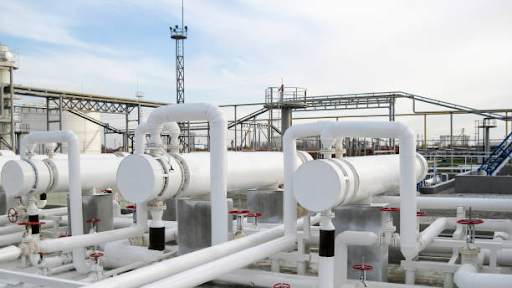Gas midstream companies play a vital role in the energy industry, facilitating the transportation, storage, and distribution of natural gas from production fields to end-users. These companies operate a vast network of pipelines, processing facilities, storage tanks, and other infrastructure to ensure the reliable and efficient delivery of natural gas.
In this in-depth exploration, we’ll delve into the world of gas midstream companies, their significance in the energy sector, and the impact they have on the economy, environment, and society at large.
Understanding Gas Midstream Operations
Gas midstream operations encompass a range of activities involved in the transportation and processing of natural gas. These activities typically include:
Pipeline Transportation
The primary function of gas midstream companies is to transport natural gas from production sites to consumption centers via pipelines. These pipelines span vast distances, crossing state lines and international borders to connect gas-producing regions with population centers, industrial hubs, and export terminals. American Piping Inspection plays a crucial role in ensuring the safety and integrity of these pipelines through rigorous inspection and testing services, further supporting environmental protection efforts.
Gas Processing
Before natural gas can be transported through pipelines, it must undergo processing to remove impurities and separate valuable natural gas liquids (NGLs) such as propane, butane, and ethane. Gas processing plants owned and operated by midstream companies play a crucial role in this process, ensuring that the gas meets quality standards and can be safely transported.
Storage and Distribution
Gas midstream companies also provide storage facilities to balance supply and demand fluctuations and ensure uninterrupted delivery to end-users. These storage facilities include underground caverns, depleted reservoirs, and above-ground tanks strategically located throughout the pipeline network.
The Role of Gas Midstream Companies in the Energy Industry
Gas midstream companies serve as the backbone of the natural gas supply chain, facilitating the movement of gas from production fields to end-users with efficiency and reliability. Their operations enable access to clean and affordable energy sources, support economic growth and development, and contribute to energy security and independence.
Enabling Energy Access
Natural gas is a versatile and abundant energy source used for heating, electricity generation, industrial processes, and transportation. Gas midstream companies play a critical role in ensuring that natural gas is readily available to meet the energy needs of households, businesses, and industries across the globe.
Supporting Economic Growth
The presence of gas midstream infrastructure, such as pipelines, processing plants, and storage facilities, stimulates economic activity and creates jobs in local communities. These infrastructure investments drive growth in related industries, such as construction, engineering, manufacturing, and services, contributing to job creation and economic prosperity.
Fostering Energy Security
The reliable and diversified supply of natural gas provided by gas midstream companies enhances energy security by reducing dependence on foreign sources of energy and mitigating supply disruptions. Natural gas is often considered a reliable and stable energy source, making it a valuable component of energy security strategies for many countries.
Environmental and Social Impact of Gas Midstream Operations
While gas midstream operations offer significant benefits in terms of energy access, economic growth, and energy security, they also pose environmental and social challenges that must be addressed responsibly.
Environmental Considerations
Gas midstream operations, particularly pipeline construction and operation, can have environmental impacts such as habitat disruption, water contamination, and greenhouse gas emissions. Midstream companies are increasingly investing in technologies and practices to minimize these impacts, including pipeline monitoring systems, leak detection technologies, and habitat restoration efforts.
Social Implications
The construction and operation of gas midstream infrastructure can also have social implications for local communities, including land use conflicts, property rights issues, and concerns about safety and health. Effective stakeholder engagement, community outreach, and transparent communication are essential for addressing these concerns and building trust with affected communities.
Innovations and Future Outlook
Gas midstream companies are continuously innovating to address emerging challenges and capitalize on new opportunities in the evolving energy landscape. Key areas of innovation include:
Digitalization and Automation
The adoption of digital technologies such as sensors, data analytics, and artificial intelligence is transforming gas midstream operations, enabling real-time monitoring, predictive maintenance, and optimized performance.
Renewable Natural Gas
Renewable natural gas (RNG), produced from organic waste sources such as landfills, wastewater treatment plants, and agricultural residues, is gaining traction as a sustainable alternative to traditional natural gas. Gas midstream companies are exploring opportunities to integrate RNG into their existing infrastructure and expand their renewable energy portfolios.
Hydrogen Infrastructure
The growing interest in hydrogen as a clean and versatile energy carrier presents new opportunities for gas midstream companies to invest in hydrogen production, storage, and transportation infrastructure. Hydrogen pipelines and storage facilities could play a crucial role in supporting the transition to a low-carbon energy future.
Conclusion
Gas midstream companies are essential players in the energy industry, responsible for the transportation, processing, and distribution of natural gas from production fields to end-users. Their operations support energy access, economic growth, and energy security while also presenting environmental and social challenges that must be addressed responsibly.
Through innovation, collaboration, and responsible stewardship, gas midstream companies can continue to play a vital role in shaping the future of energy and contributing to a more sustainable and resilient energy system.


